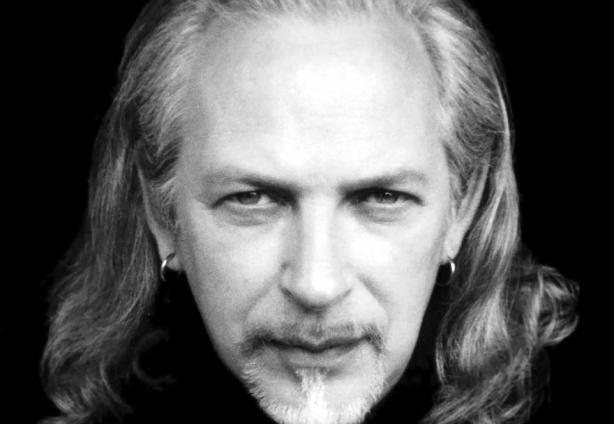A veritable icon of the music scene in the late 1970s and early 1980s, Steven Severin now composes music for film. After writing music for a number of original films, he now focuses on “silent” film and has so far created new, contemporary scores for Germaine Dulac’s La Coquille et le Clergyman, Jean Cocteau’s surreal Le sang d’un poète and, most recently, Carl Dreyer’s Vampyr which he toured extensively last year. This Friday, February 15, he brings his Cocteau score to the Cinémathèque as part of the capital city’s celebration of the great artist.
DR: You have said that in doing these shows you take up the role of a “21st century accompanist”, and it seems you have always embraced modern technology. How important is technology in your work?
SS: At first I was drawn to working on computers as an evolution of home songwriting. Dictaphone to cassette to reel-to-reel to portastudio, and so on. It was the obvious next step. However, the more I embraced this technology, I realised it was made for me in that I like to work in a very solitary, focused manner. It also throws up endless happy accidents that lead you into places you don't imagine at the outset. Of course, there is also the economics to consider, too. If I want to try a flute for a part, it's right there. I don't have to pick up the phone and call in a friend or a session player plus (and this is a BIG plus), I can make that flute play in a register that doesn't exist in the real world. I can process it through several different effects without the player bleating… It's this kind of autonomy I thrive on.
DR: How have critics and audiences reacted to what is a very contemporary score? Do you take notice of feedback?
SS: It's always important to take note of people's reaction to the work, both good and bad, as there is quite often something to be drawn from it. However, I have no time for the school of thought that thinks the films I have chosen to work with, should remain "intact". I have no time for the intolerance of purists. I know that my intent for bringing these films to a new audience is honest, and that is the only purity that counts. When does one get the opportunity to see Cocteau in a cinema, these days? Almost never. I grew up through the golden age of Art House cinema in the 70s. Doing what I do, in my own small way, keeps that spirit alive, I hope.
DR: What is the major challenge in writing music for a classic such as Blood of a Poet or Vampyr as opposed to composing an original score for a new film or television broadcast? Do you have more freedom, or are there constraints imposed by familiarity?
SS: For as long as I can remember, I'd always been intrigued by the idea of live accompaniment. Once I got involved in writing film music, I was immediately struck by how few directors really understand the importance of music in film. Consequently, more often than not, I've been left quite despondent and at times, quite angry, by the end result of my work in new, commercial projects. The music is never prominent enough, it's slotted into the wrong place or truncated in an unmusical way. The list goes on. I accept it's totally my fault for getting so involved and that, for my sanity as much as anything else, I should have a more cavalier approach; but I can't. It was this dissatisfaction that finally thrust me toward working with "silent" film. Maybe I'm just a terrible control freak but I prefer working with directors who have long since passed on. It's nice and quiet that way…
DR: Does the surreal nature of the three films you have composed for so far give you a broader scope to experiment with sound? Have you chosen a new project yet?
SS: Absolutely. There are manifold ways to interpret the narratives and therefore, multiple ways to score these films. More than that though, films of this nature are my personal choice. I love the riddle, the loose ends. That's just me. As far as what's next; I haven't quite decided yet. I'm tempted by The Golem, by The Lodger, by L'Age d'Or. It just hasn't hit me yet. I have to be totally convinced for it to work, not least because a lot of time and work goes into each project before I take it out.
DR: You book your own shows and often tour by train in the UK; do you enjoy this back to basics approach to working?
SS: I prefer to think of it as an "auteur" approach. I enjoy touring, travelling in general--I just hate someone else determining my schedule. I had enough of that in the past, thank you. So, it's kind of half by design and half imposed by economic factors. I know what I've chosen to do, at present, has a pretty small, niche audience and, as no-one is funding me, I have to fly solo--literally.
DR: Do you ever miss playing in a band or are you content to be your own boss?
SS: I'd be a liar, if I said I didn't occasionally get misty-eyed about the Banshees. However, I'm very comfortable with knowing that there is a definitive beginning and end to the band's output. I think we called it quits without doing too much damage to the legacy. For whatever the reasons, we could sense a decline and we felt strongly enough to fall on our sword. That's a pretty rude achievement in itself.
Steven Severin performs live accompaniment to Jean Cocteau’s Le sang d’un poète, Friday February 15 at 8.30 p.m. Cinémathèque, place du Théâtre, Luxembourg-Centre.
www.cinematheque.lu
